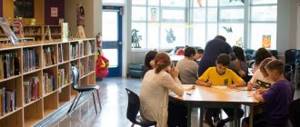Analysis of extracurricular activities in English on the topic of Regional Studies of Great Britain
| Analysis of extracurricular activities in English Form: extracurricular activity; competition game; Date: 12/09/2015 Topic: “Country Studies of Great Britain” “BRAIN OF BRITAIN” The choice of topic, form and selection of material for extracurricular activities in English are determined by its relevance and place in the system of English lessons. The techniques used to activate and include the audience in the communication process - only as fans. Number of students who took part in the event: 11 Goals of the game:
Game objectives:
|
The content and form of the event fully correspond to the planned goals and objectives:
- the event has great educational value;
- The event aims to foster interest in the English language and the country of the language being studied;
- The event had the following educational value:
contributed to the formation of a versatile and harmoniously developed student’s personality, cultivated in students the qualities of cooperation and interaction, the spirit of competition and the desire to become the first;
- the form of the event (game-competition) was chosen taking into account the age and individual psychological characteristics of the students;
- interdisciplinary connections were traced (English, regional studies).
The extracurricular activity material is entirely based on the educational material studied in English lessons on this topic.
In organizing the event, a creative element was evident in the activities of the teacher and students: the teacher tried to create a relaxed atmosphere of communication, while the students actively showed creative thinking when performing competition exercises.
Level of preparation of the event:
- TSO and musical accompaniment were used during the event.
- A presentation on a projector and tasks on cards were used for clarity.
Students' attitude towards the event:
- During the event, students showed enthusiasm and high activity;
- showed discipline and personal interest;
- at the extracurricular event, a businesslike and at the same time friendly atmosphere of mutual understanding and interest reigned;
- the psychological climate was favorable and conducive to fruitful cooperation between teacher and students to achieve their goals.
- students rate the event as interesting and educational;
- One of the most enjoyable parts of the event was the announcement of the winner and the awarding of the teams (a diploma was used as prizes, as well as small sweet prizes as a reward for the work done).
General characteristics of the event:
- This form of conducting the event was chosen successfully and is quite effective for this stage of education and corresponds to the age characteristics and interests of students.
- The selected material for the event corresponded to the level of development of the children. It also contributed to increased interest in the lesson, cognitive activity in learning English, improvisation and imagination.
- The event clearly demonstrated the compliance of the results with the goals set.
- The extracurricular activity took the form of a competition between two teams, which contributed to the development of the ability to work in groups.
- At the end of the event, the results were summed up, the class was given a diploma of gratitude for their assistance in holding an extracurricular event, and all students were awarded sweet prizes.
- During the lesson, techniques and methods of collective, group work with students were used. The combination of these methods and techniques made it possible to carry out hidden control of the development of speech skills and see students’ assimilation of previously covered material.
- This extracurricular event was successful, as there were no negative aspects of the event. Students eagerly and interestedly entered into dialogue with each other, worked actively in groups, and it was possible to observe the communicative liberation of children in a warm, friendly environment.
- there were no changes during the event.
- the set goals and objectives of the event were achieved.
- children received emotional and aesthetic satisfaction.
Self-analysis of the extracurricular activity “Merry Christmas and Happy New Year!”
Self-analysis
of the extracurricular activity “Merry Christmas and Happy New Year!”
Full name of teacher: Khairutdinova G.Sh.
Item:
English language
Topic of extracurricular activity:
What do you know about British traditions? Christmas` and New Year symbols and traditions in Britain.
Type of
lesson and its structure :
extracurricular activity
Grade :
5-10
Number of students in class
: 18
This extracurricular activity is related to the theme in grades 5 and 8 “Traditions” (V.P. Kuzovlev)
Target:
communicative - speech development of students through the communication of knowledge, staging a fairy tale about the traditions of celebrating Christmas and New Year in the UK. To promote team unity among students (grades 5-10) during the event.
Tasks:
Speech competence:
develop pronunciation skills of monologue and dialogic speech.
Language competence:
bring to automation the use of lexical units in speech on the topic “New Year, Christmas”.
Sociocultural company:
introduce the traditions of celebrating Christmas in Great Britain and Russia
Compensatory competence:
develop linguistic guesses and imagination, creative thinking, critical thinking, memory.
Educational and cognitive competence:
develop skills in working with text, the ability to extract basic information from listening and reading about the main Christmas traditions in the UK.
Cognitive aspect:
introduce students to the traditions and culture of the country of the language being studied based on the Christmas and New Year holidays.
Developmental aspect:
develop mental functions associated with speech activity (attention, the ability to analyze and synthesize, logical thinking, the ability to identify linguistic patterns, linguistic guesswork, visual and auditory memory, phonemic hearing).
Educational aspect:
master all types of speech activity: speaking, listening, reading.
Educational aspect:
increase interest in learning English, cultivate a culture of linguistic communication, respectful attitude towards each other, fostering tolerance and respect for another culture, the ability to listen carefully to your interlocutor.
Language material:
words, symbols, speech patterns, monologue and dialogic statements on the theme “Christmas”, New Year.
The extracurricular activity was carried out using elements of a system-activity approach. Mass cultural events, an evening celebration dedicated to the folk traditions of the native country and the country whose language is being studied. Number of students present: 18. The student population is average. 13 students from 5th grade. This selection is related to the holding of subject Olympiads, so the contingent of children changed several times. In this regard, preparation for the event had its own difficulties and took the guys from 2 to 5 days.
The goals and objectives of the event fully comply with the requirements of the Federal State Educational Standard (NQF). The equipment is prepared for the start of the holiday. The stage contained the information necessary during the lesson, equipment, tables and chairs were arranged in accordance with the number of students. Incentives have been prepared for the children. Visualization contributed to a better perception of the material and tasks, in addition, they activated and maintained the students’ attention throughout the entire event and developed cognitive interest.
The hall was prepared for the lesson: temperature, lighting, furniture met the standards, the hall was clean. Students are ready for class: there are wall newspapers on the stand, poems have been learned, material on the topic is repeated. The organization of the lesson met the requirements of valeology: ergonomic conditions were met; there was a change of activities, a musical break (physical minute); optimal pace of the event. The lesson is aimed at developing cross-cultural and communicative competencies of students. Teaching a foreign language throughout the holiday in the context of a dialogue of cultures (comparing two cultures - Russian and English) is a powerful factor in the personal development of students. The choice of the type and topic of the lesson corresponds to the celebration of Christmas and New Year, as well as the purpose of the lesson and language learning in general.
In preparation for the lesson, educational standards and program requirements for speaking (based on text) were used. The teacher acts as an instructor and consultant (according to the Singapore method, a facilitator). The lesson is based on material that allows students to use it for future oral presentations as well.
Throughout the lesson, the following general didactic principles were implemented:
1.
The principle of consciousness:
students’ understanding of the content of foreign language speech, awareness of the units of which speech consists, and ways of using such units. The implementation of this principle is carried out through working with vocabulary on the topic (level of words, phrases, sentences).
2.
The principle of activity
assumed the speech activity of students during the entire event, the main sources of which were goals, desires and interests.
3
The principle of visibility.
There were linguistic and non-linguistic visual displays at the festival.
4
.
The principle of strength
ensured the retention of educational material in memory and the possibility of its use in various types of speech activity.
5.
The principle of accessibility and feasibility,
because the material was presented in accordance with the age and intellectual capabilities of students (identified based on the analysis of the foreign language program, in the process of studying the age characteristics of adolescence (the level of development of mental processes; VVD and neoplasms of a given age).
6
In addition, we implemented a psychological and pedagogical principle
- the principle of continuity, which
provided students with the opportunity to express their personal attitude and their own judgment.
Proper methodological principles:
1
.
The principle of communication
.
2.
The principle of interconnected teaching of types of speech activity:
3. The principle of taking into account the level of language proficiency:
organizing a holiday in accordance with language training through the use of multi-level materials.
During the entire event, methods of organizing educational and cognitive activities were implemented: according to the source of information transmission - verbal, visual, practical (questions). At the same time, the individual characteristics of the classes were taken into account (general academic skills are at an average level, the level of mental development is high).
4. During the lesson, a psychological principle was implemented - the principle of motivation,
that is, the organization of an emotionally positive attitude of students towards the learning process itself. This principle was implemented through the use of emotional stimulation methods.
5. During the event, the principle of taking into account the individual psychological and age characteristics
of the individual was also implemented,
because When organizing and holding the holiday, the individualization of training was taken into account. The content of the holiday included tasks of medium and high complexity, taking into account the interests and capabilities of students.
At the end of the lesson there were incentives “Fine”, “Well done”, sweet prizes, etc., which contributed to the creation of a productive atmosphere during the entire event. Students are full of energy and show interest in the subject. According to the Singaporean method, the ENVIRONMENT method was used, at the end a chant was heard - TIMCHIR. They easily entered into dialogue, answered questions, and provided feedback.
The success of the lesson lies in the fact that the main figure of the entire holiday is the student with his interests, abilities, and life experience. Students, participating in collective interaction, try to use their language capabilities, and this is a good basis for motivation and increasing interest in learning English.
References:
- V.P. Kuzovlev English language. Books for teachers grades 5-9





